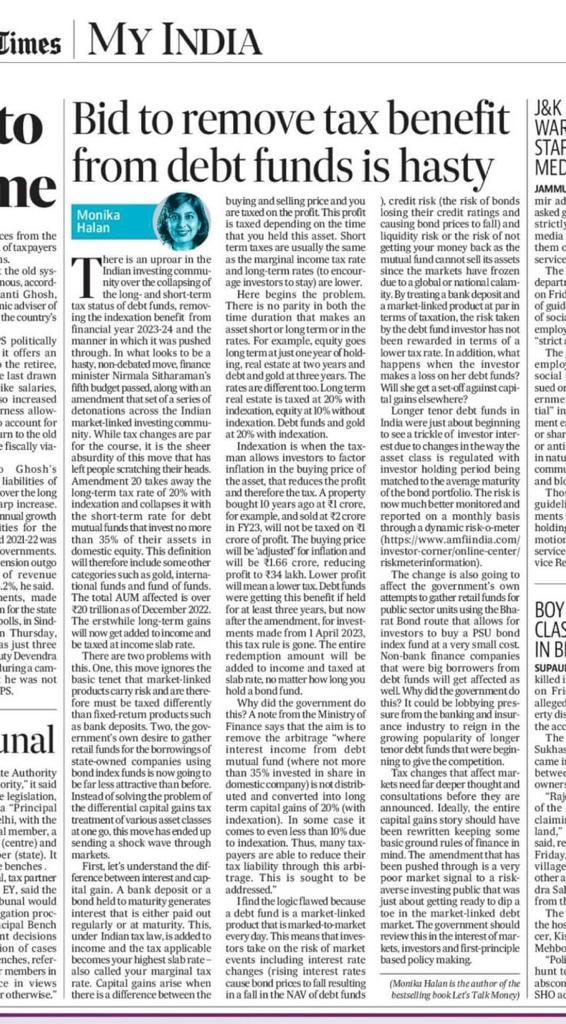There is an uproar in the Indian investing community over the collapsing of the long- and short-term tax status of debt funds, removing the indexation benefit from financial year 2023-24 and the manner in which it was pushed through.
There is an uproar in the Indian investing community over the collapsing of the long- and short-term tax status of debt funds, removing the indexation benefit from financial year 2023-24 and the manner in which it was pushed through. In what looks to be a hasty, non-debated move, finance minister Nirmala Sitharaman’s fifth budget passed, along with an amendment that set of a series of detonations across the Indian market-linked investing community. While tax changes are par for the course, it is the sheer absurdity of this move that has left people scratching their heads. Amendment 20 takes away the long-term tax rate of 20% with indexation and collapses it with the short-term rate for debt mutual funds that invest no more than 35% of their assets in domestic equity. This definition will therefore include some other categories such as gold, international funds and fund of funds. The total AUM affected is over ₹20 trillion as of December 2022. The erstwhile long-term gains will now get added to income and be taxed at income slab rate.


